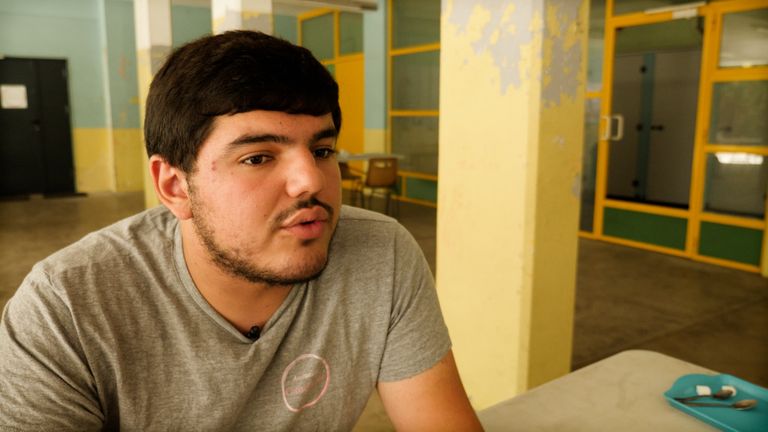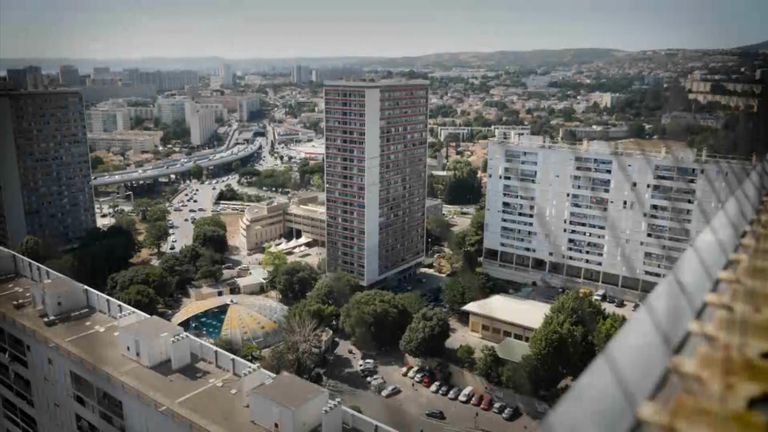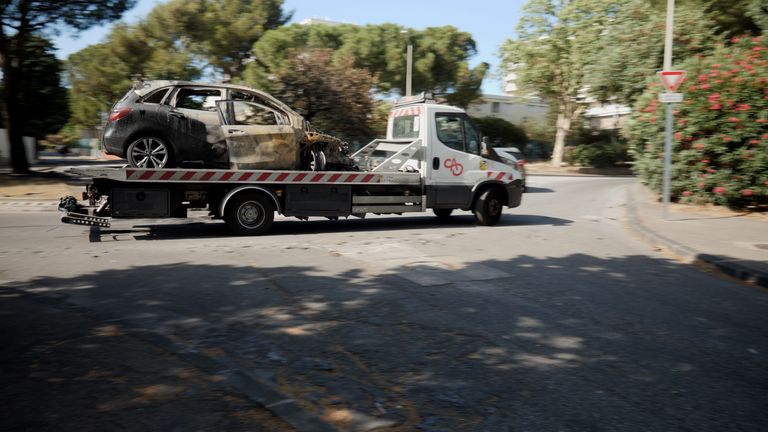On Marseille’s estates, trouble is simmering.
Shootings are frequent, and cannabis and cocaine provide a steady income.
We’ve come to Frais-Vallon in the quartiers nord area to find out more about the challenges facing one of the poorest areas in France.
Our guide, Amine Kessaci knows how dangerous it can be; his brother fell into drugs and was murdered in 2020.
Over 200,000 people live on the so-called “cites”, deprived concrete jungles on the edges of France’s second city.
Mr Kessaci thinks the isolation and frustration helped fuel the recent rioting and looting after police shot teenager Nahel Merzouk in Nanterre last week.
“At first it was all about justice for Nahel, but now they don’t even know what they’re fighting for. It’s all sorts of things that are mixed up. France is like a pressure cooker, we’ve added and added and added to it, put on the lid, and then the lid has blown off,” he says.
The block in front of us on the sprawling estate has 21 floors.
The crime makes many of the areas in quartiers nord no-go zones.
Extreme poverty pumps up the pressure even more.
When law and order broke down last week, some saw an opportunity.
“I think that since everyone is breaking everything, they’re making the most of it to go looting,” says Mr Kessaci’s sister-in-law, Tamara.
She knows of men on the estate who joined the gangs pillaging the city’s shops on Friday.
Police aren’t a deterrent.
The hut that once housed the community officers is long-closed and the relationship with police is non-existent.
The shooting of Mr Merzouk has amplified complaints about racist officers as many living in these estates share his North African heritage and feel targeted.
Something unions deny.
“There are maybe some problems on the margins, I stress, on the margins, a sort of residual discrimination. Maybe. But it’s not proven. Today the police really are a mirror image of the population,” says Eddy Sid, spokesperson for Unité SGP policing union.
The government has brought in extra police to restore calm, cracking down on troublemakers.
Mr Kessaci has set up Association Conscience, an organisation to help get people in quartiers nord better opportunities and training.
He believes any peace in Marseille will be short-lived unless long-running inequalities are addressed.
“We can’t call for calm for people who don’t have anything else to lose. That’s it really – these days, half of these kids don’t have anything to lose. When they’re arrested, taken to jail, killed, they don’t really have a life, so it won’t make a difference.”
In 2021, President Macron pledged €5bn (£4.2bn) to hire more police, renovate schools and public spaces and improve the public transport network.
Last month, he spent three days in Marseille and promised another boost for the estates but it isn’t enough for Mr Kessaci.
“The state has abandoned us. They have abandoned the neighbourhoods,” he says.


















































